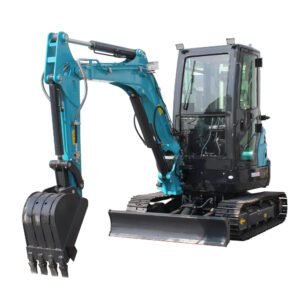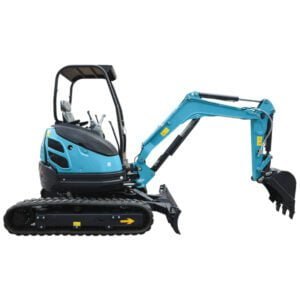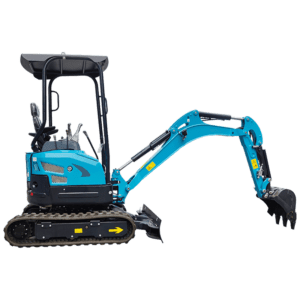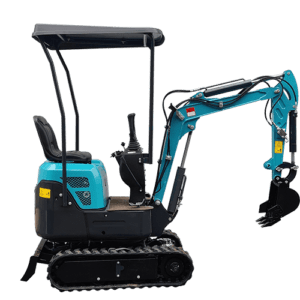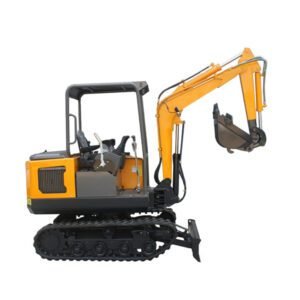Introduction
Selecting the right small excavator for your project is crucial to ensure efficiency, cost-effectiveness, and the successful completion of your tasks. Whether you’re a contractor, landscaper, or a DIY enthusiast, understanding the various aspects of small excavators can help you make an informed decision. This guide will cover the types, features, uses, and maintenance of small excavators, providing you with all the information you need to choose the best machine for your needs.
Understanding Small Excavators
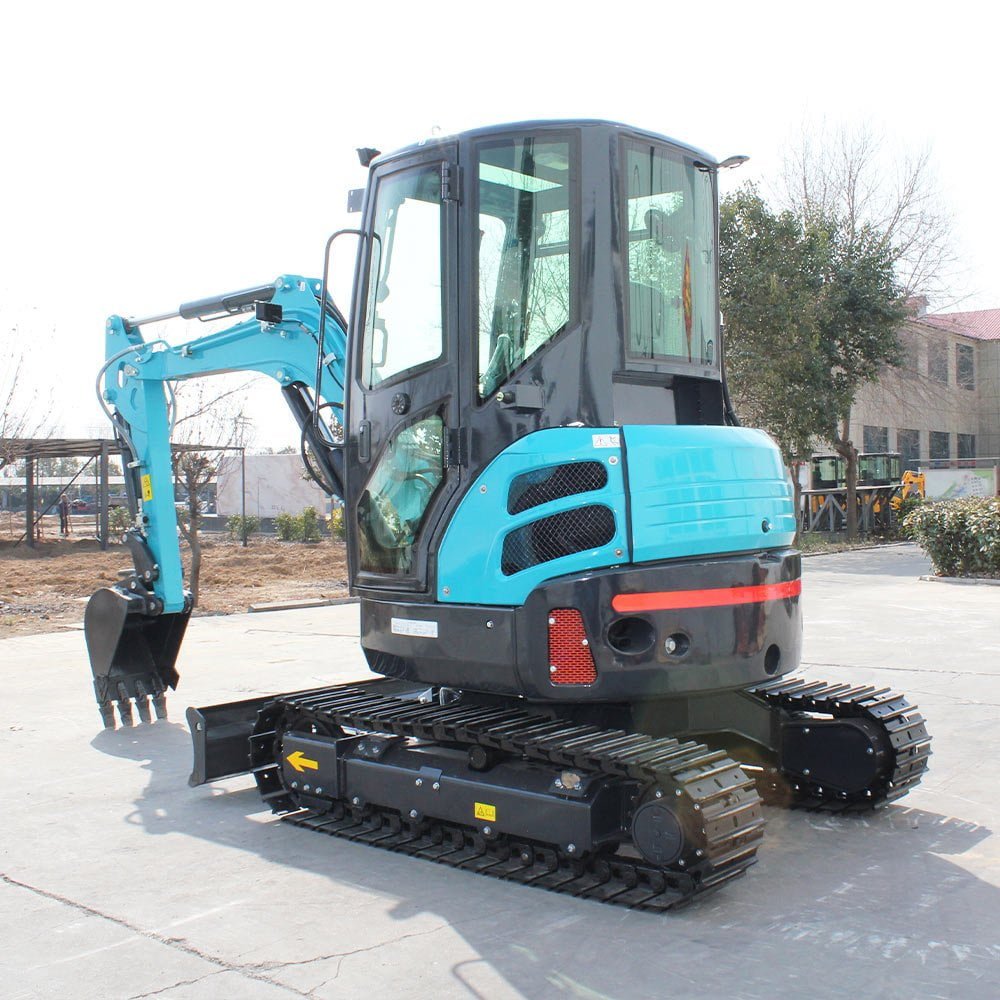
Small excavators, also known as compact excavators, are versatile machines used for a variety of tasks, including digging, trenching, and material handling. They are designed to work in confined spaces where larger machines cannot operate efficiently. Here’s an overview of their key components and functionalities:
- Boom and Arm: These components enable the machine to reach and dig at various depths.
- Bucket: Attached to the end of the arm, the bucket is used for digging and scooping materials.
- Cab: The operator’s station, equipped with controls for maneuvering the excavator.
- Undercarriage: Includes tracks or wheels, providing mobility and stability to the machine.
Types of Small Excavators
There are different types of small excavators, each suited for specific applications. Understanding these types can help you choose the right one for your project:
- Mini Excavators: Weighing between 1 to 6 tons, mini excavators are ideal for light-duty tasks and operate efficiently in tight spaces.
- Midi Excavators: Weighing between 6 to 10 tons, midi excavators offer more power and reach compared to mini excavators, making them suitable for medium-duty tasks.
- Micro Excavators: These extremely compact machines weigh less than 1 ton and are perfect for very confined spaces, such as indoor projects.
Key Features to Consider
When selecting a small excavator, several features should be considered to ensure it meets your specific needs. Here are the most important ones:
- Operating Weight: The weight of the excavator affects its stability and the types of tasks it can handle.
- Digging Depth: The maximum depth the excavator can dig is crucial for determining its suitability for your project.
- Engine Power: A powerful engine ensures efficient performance and the ability to handle tough tasks.
- Hydraulic Flow: High hydraulic flow allows for the use of various attachments, enhancing the machine’s versatility.
- Cab Comfort: An ergonomically designed cab with good visibility and easy-to-use controls can improve operator efficiency and safety.
Comparing Small Excavator Models
To help you make an informed decision, here’s a comparison of some popular small excavator models, highlighting their key specifications:
| Model | Operating Weight (tons) | Digging Depth (feet) | Engine Power (HP) | Hydraulic Flow (GPM) |
|---|---|---|---|---|
| Caterpillar 301.7 | 1.7 | 8.2 | 21.6 | 17.1 |
| Bobcat E35 | 3.5 | 10.2 | 33.5 | 21.1 |
| Kubota U17 | 1.7 | 7.7 | 16.1 | 15.9 |
| John Deere 35G | 3.5 | 10.0 | 23.3 | 20.1 |
| Komatsu PC30 | 3.2 | 9.8 | 29.1 | 19.5 |
Factors to Consider Before Purchase
Before purchasing a small excavator, evaluate these critical factors to ensure it aligns with your project requirements:
- Job Site Conditions: Consider the terrain, space constraints, and the nature of the work to determine the appropriate size and type of excavator.
- Budget: Assess your budget for both the initial purchase and ongoing maintenance costs.
- Attachments: Determine the types of attachments you’ll need, such as buckets, augers, or breakers, to ensure the excavator you choose is compatible.
- Resale Value: Consider the resale value of the excavator, which can be influenced by the brand, model, and condition of the machine.
- Dealer Support: Evaluate the availability of dealer support and service in your area to ensure prompt assistance when needed.
Maintenance Tips for Small Excavators
-1.png)
Regular maintenance is essential to keep your small excavator in optimal condition. Follow these tips to extend the lifespan of your machine:
- Daily Inspections: Conduct daily checks for any signs of wear and tear, fluid leaks, and other issues.
- Lubrication: Keep all moving parts well-lubricated to reduce friction and prevent damage.
- Filter Changes: Replace oil, fuel, and air filters as recommended by the manufacturer.
- Track Tension: Maintain proper track tension to ensure stability and prevent premature wear.
- Hydraulic System Maintenance: Regularly check hydraulic fluid levels and inspect hoses and fittings for leaks or damage.
Conclusion
Choosing the best small excavator for your needs requires careful consideration of various factors, including the type of excavator, key features, job site conditions, and maintenance requirements. By understanding the different models available and their specifications, you can make an informed decision that will enhance the efficiency and success of your projects. Regular maintenance and proper usage will ensure your small excavator remains in top condition, providing reliable performance for years to come.
FAQ
Q1: What is the difference between a mini excavator and a midi excavator?
A: Mini excavators typically weigh between 1 to 6 tons and are suitable for light-duty tasks and confined spaces. Midi excavators, on the other hand, weigh between 6 to 10 tons and offer more power and reach, making them suitable for medium-duty tasks.
Q2: How do I determine the right operating weight for my small excavator?
A: The operating weight should be based on the type of tasks you need to perform and the job site conditions. Heavier excavators provide more stability and power but may be less maneuverable in tight spaces.
Q3: Can I use multiple attachments with my small excavator?
A: Yes, most small excavators are compatible with various attachments, such as buckets, augers, breakers, and grapples. Ensure that the hydraulic flow of your excavator matches the requirements of the attachments.
Q4: How often should I service my small excavator?
A: Follow the manufacturer’s recommendations for servicing intervals, typically every 250 to 500 hours of operation. Regular maintenance, including daily inspections and lubrication, is crucial for optimal performance.
Q5: Is it better to buy or rent a small excavator?
A: The decision to buy or rent depends on the duration and frequency of your projects. Renting can be more cost-effective for short-term or infrequent projects, while purchasing is more economical for long-term use.





